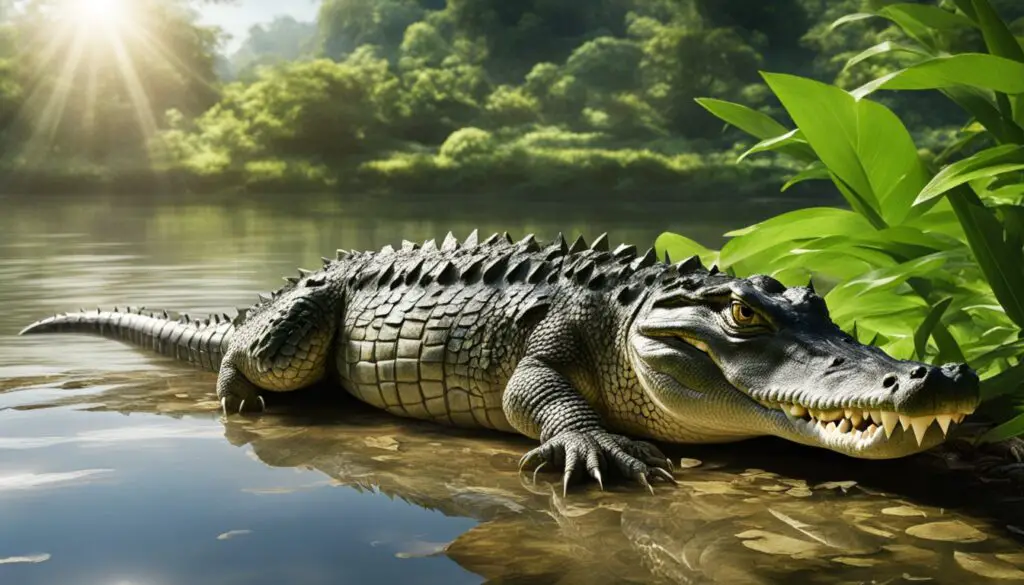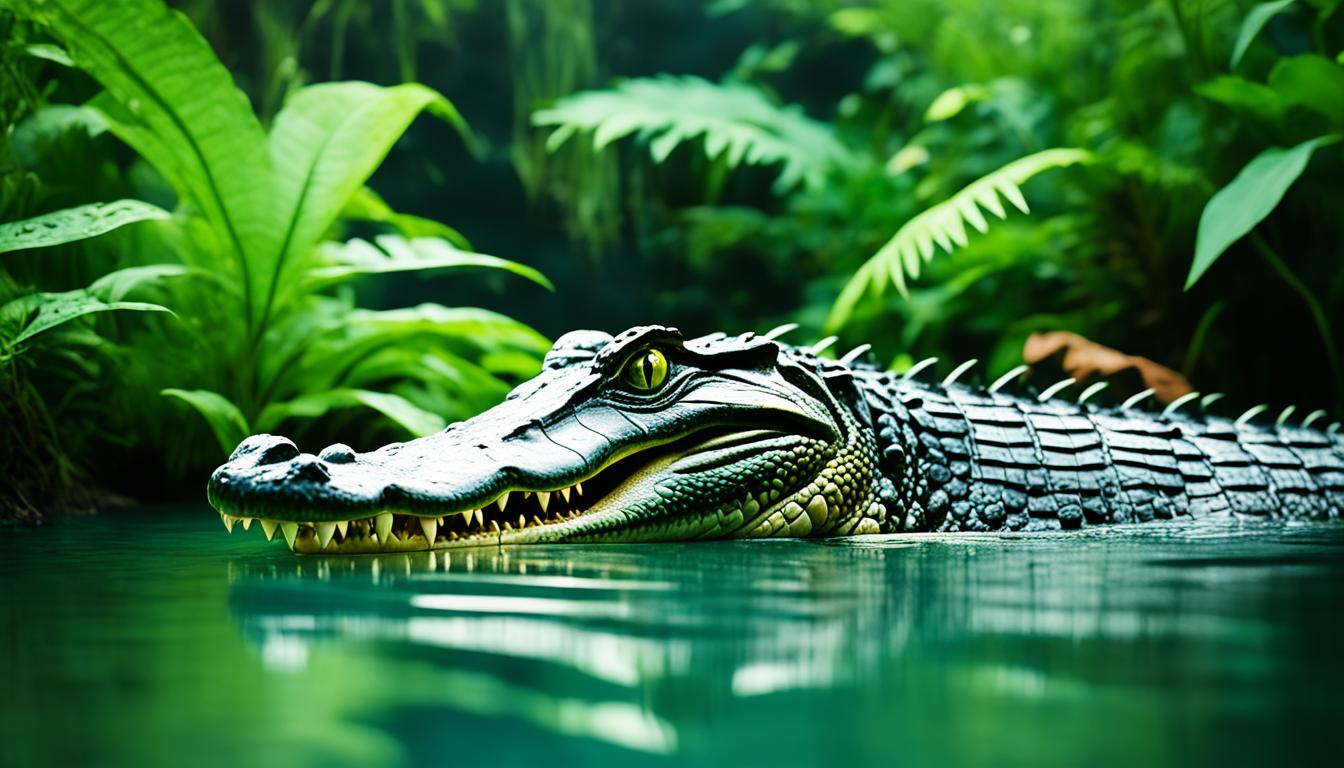Crocodiles are among the longest-living reptiles, making us wonder, how long do crocodiles live? Knowing about the crocodile lifespan helps us understand their biology and role in nature. Many things affect how long they live, like their environment and individual health.
This article will look into the typical crocodile age in the wild and in captivity. It will give you insights into their life expectancy. By learning about these amazing creatures, you’ll see how adaptable and resilient they are.
Crocodile Longevity: An Overview
Crocodiles live a long time, with some species lasting decades. For instance, the saltwater crocodile can live over 70 years in the wild. In captivity, they can live even longer.
Studies suggest that some crocodiles can live up to 100 to 120 years with good care and food. Cassius, a famous saltwater crocodile, turned 120 years old. This shows how living well can help crocodiles live longer.
In the wild, most crocodiles live about 60 years. This shows how living in captivity can make a big difference. It helps us understand why some crocodiles live so long.
| Species | Typical Lifespan in the Wild | Potential Lifespan in Captivity |
|---|---|---|
| Saltwater Crocodile | 60 years | Up to 120 years |
| Nile Crocodile | 50-70 years | Approximately 100 years |
| American Crocodile | 50-70 years | Up to 80 years |
The Average Lifespan of Crocodiles in the Wild
The lifespan of crocodiles in the wild varies a lot. It depends on the species, the environment, and threats from predators. For example, Nile crocodiles can live over 40 years. Saltwater crocodiles might reach 70 years if they have good living conditions. Knowing how different factors affect their life span is important.

- Predation: Young crocodiles face big dangers from bigger predators. This can greatly lower their survival chances.
- Cannibalism: Sometimes, bigger crocodiles eat the smaller ones. This is another risk for young crocodiles.
- Habitat loss: Changes in the environment can make it harder for crocodiles to find food. This can shorten their lives.
- Health factors: Diseases and parasites can also affect how long crocodiles live in the wild.
Most crocodilians don’t live more than 60 years, but some can live longer depending on their environment. Learning about these factors helps us understand how long crocodiles can live in the wild.
Crocodile Lifespan in Captivity
Crocodiles in captivity live longer than those in the wild. This is because they don’t face threats like predators or environmental dangers. They also have a steady food supply and regular health checks.
Having enough food is key to their long lives. In captivity, they get nutritious meals that help them stay healthy. Regular vet visits also keep them safe from diseases and injuries.
The American crocodile can live over 25 years in captivity. Some even reach ages over 70. Cassius, a saltwater crocodile, lived more than 120 years, showing how well they can do with care.
| Crocodile Species | Average Lifespan in Captivity | Notable Lifespan Records |
|---|---|---|
| American Crocodile | 25-70 years | Up to 100 years |
| Saltwater Crocodile | 70-120 years | Over 120 years (Cassius) |
| Nile Crocodile | 50-100 years | Around 105 years |
Wild crocodiles face many challenges that captives don’t. This shows how well these ancient reptiles can thrive with care.
How Long Do Crocodiles Live? Factors Influencing Lifespan
The lifespan of crocodiles changes a lot due to important factors. These factors affect their health and how long they live. Knowing these factors helps us understand how crocodiles age and survive in the wild and in captivity.
Habitat Quality and Availability of Food
The quality of their habitat is a big factor in how long crocodiles live. A good ecosystem means there’s enough food and safe places to live. In places full of life, crocodiles live longer because they get the food they need to grow and survive.
Poor living conditions can make crocodiles stressed, hurt their ability to have babies, and shorten their lives.
Predation and Cannibalism
Young crocodiles face a big threat from bigger predators and even being eaten by adults. This can stop their populations from growing and lower the chances of young ones surviving. Knowing about these dangers helps us see why some places have more crocodile deaths, which affects how long they live there.
FAQ
How long do crocodiles typically live in the wild?
In the wild, crocodiles usually live about 40 to 60 years. This depends on the species and their environment.
What is the maximum lifespan recorded for crocodiles in captivity?
In captivity, crocodiles can live up to 100-120 years. Some, like Cassius, a saltwater crocodile, have even reached over 120 years.
How does predation affect crocodile lifespan?
Young crocodiles face threats from larger predators and cannibalism. This can greatly shorten their lives.
What factors influence crocodile longevity?
Many things affect how long crocodiles live. These include the quality of their habitat, food availability, predation, and social interactions. These can change depending on the species and where they live.
Do crocodiles age differently in captivity compared to the wild?
Yes, crocodiles live much longer in captivity. This is because they face fewer threats, have steady food, and get vet care.
Can saltwater crocodiles live longer than other species?
Yes, saltwater crocodiles can live over 70 years in the best conditions. They often live longer than the Nile crocodile.
What is the life expectancy of an American crocodile?
In captivity, American crocodiles can live more than 25 years. Many reach 70 years or more.
How does habitat quality impact crocodile survival?
Better habitats mean more food and better places to hide. This helps crocodiles live longer.







